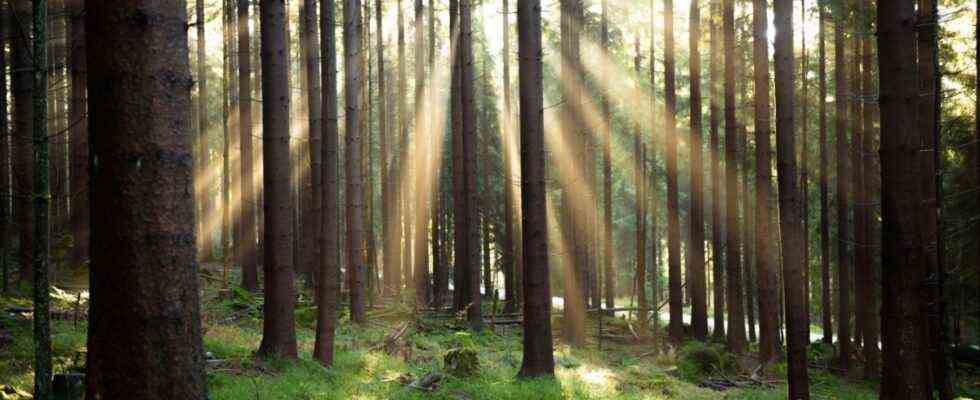The bark beetle and other pests have played less of a bad role in the forests in Bavaria this year than in previous years. Wood prices have also risen again. Nonetheless, the Bavarian State Forests (BaySF), which manage the state forests in the Free State, posted a sharp drop for the second time in a row. Its operating loss in the 2021 financial year amounts to 19.2 million euros. The net loss, including provisions for pensions, even amounts to 64.2 million euros. Sales totaled almost 340 million euros.
Nonetheless, the state-owned enterprise’s situation has improved. The supervisory board chief and forest minister Michaela Kaniber (CSU) and the company’s board of directors emphasized this when the figures were presented on Friday. On the one hand, the operating minus has almost halved compared to the previous year. Sales rose by a good 25 million euros, mainly thanks to the rising wood prices. Kaniber was confident that “we are at the end of the most severe wood market crisis in decades” and that the BaySF will soon have stabilized again.
With 41 forest companies across the Free State and 2,700 employees, the BaySF are Germany’s largest forest company. The 808,000 hectares that they cultivate correspond to a good eleven percent of the country’s area. 756,000 hectares of which are forest. The cause of the BaySF crisis is the spruce. In the past year the company felled 4.1 million cubic meters of wood. The lion’s share were spruce trees. The spruce is traditionally the bread tree of forestry, i.e. the tree species that generates the most sales. At the same time, it is particularly susceptible to the climate crisis and pests; in the past dry and hot years, huge amounts of so-called spruce damaged wood were produced.
The result was a flooding of the wood market with spruce and an immense fall in the price of spruce wood. In 2020 alone, it amounted to 17 euros per cubic meter of logs. With 2.3 million solid cubic meters of spruce trunks felled, the decay totaled almost 40 million euros and thus corresponded almost exactly to the 36.3 million euro hole in the BaySF cash register in 2020. Also thanks to the great demand overseas the spruce price has since recovered. In addition, due to the cooler and more humid weather this year, the amount of damaged wood is declining. Currently, between 120 and 140 euros are paid for the solid cubic meter of spruce wood. This is a level that, according to Kaniber, “enables proper economic activity” again.
BaySF CEO Martin Neumeyer assured that his company was “committed to a modern climate policy”. “We want to and can do our part to reduce CO2,” he said. “By maintaining the forests and expanding them as much as possible, by converting them into climate forests in a future-oriented manner and by planting additional trees.” According to its own information, the BaySF has been converting around 7,000 hectares of pure spruce forests per year into species-rich mixed forests that are better able to withstand the climate crisis. Now they want to expand the so-called forest conversion to 8,000 hectares per year. According to the company, six million trees are planted every year, half of them were oaks in the past year.
The Greens MP Hans Urban welcomed “that the BaySF have crossed the economic downturn on the wood market”. From his point of view, however, there will be more and more wood crises in the future. That is why the BaySF should from now on have a more active impact on the timber market and timber prices. For example, by preserving trees felled in times of crisis in special warehouses, as Urban demanded, and only bringing them onto the market when the end of the crisis is in sight.

